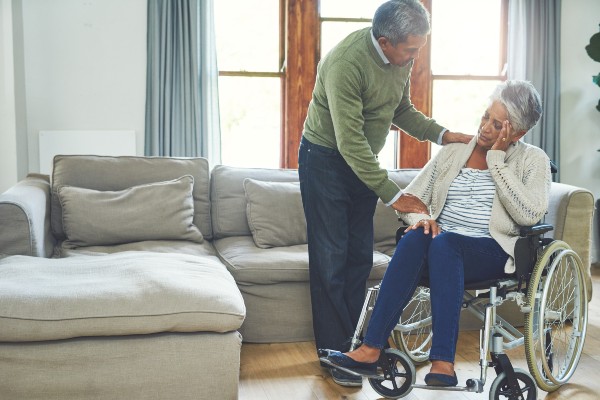As your parents or other loved ones grow older, you may notice a little forgetfulness. Maybe they forget where they put their car keys or glasses. Or maybe they can’t recall information as quickly as they used to. That’s normal. Usually, when people have memory loss due to normal aging, their lives are not impacted significantly.
However, if your loved one is experiencing memory loss due to dementia, such as Alzheimer’s disease, the symptoms will worsen over time.
“Due to changes in the brain, the brain cells do not work properly. Eventually, the cells die, causing irreversible damage,” explains Vickie L. Armstrong, DNP, GNP-BC with Riverside Neurology Specialists. “Most patients with Alzheimer’s disease will need a caregiver as the condition advances because they lose the ability to function independently.”
The Alzheimer’s Association offers a guide to help you know what to expect as memory loss and dementia progress.
Signs of early stage Alzheimer’s disease
In the early stages of Alzheimer’s disease, memory loss is somewhat mild. Your loved one might:
- Forget the name of a person or object
- Forget newly learned information
- Forget the location of a familiar object
- Find it challenging to perform tasks in a work setting
- Have trouble with planning or organizing
As frustrating as these symptoms might be, your loved one may still be able to drive and function independently during the early stage of Alzheimer’s.
Signs of middle stage Alzheimer’s disease
During the middle stage of Alzheimer’s, your loved one may require more care and attention. He or she may:
- Act in strange ways (refuse to bathe or shred tissue paper repeatedly, for example)
- Confuse words
- Forget their own address, phone number or school attended
- Lose track of what day it is
- Need help to choose the right clothing for the weather or occasion
- Wander off and get lost
Final stage of Alzheimer’s disease
In the final stage of Alzheimer’s, your loved one’s memory and cognitive skills decline even further, and you’ll notice significant personality changes. Your loved one may:
- Become unaware of his or her surroundings
- Forget how to use common items such as a fork or pen
- Forget recent experiences
- Have great difficulty carrying on a conversation
- Lose ability to walk, sit and swallow
By this stage, your loved one may need 24/7 help with personal care and daily activities.
Be aware of memory loss and behavior triggers
As time goes on, you’ll notice that any change – such as a change in routine or living arrangements – can cause your loved one’s symptoms to worsen. An infection can also cause your loved one’s symptoms to increase. If you ever have questions, consult a doctor.
Research new medicine
Check with your loved one’s physician to learn about treatment options. At this time, there is no medicine or treatment that will stop the damage that Alzheimer’s disease does to the brain. However, some medicines will lessen the symptoms of Alzheimer’s in the initial stages and possibly delay progression of the disease.
Learn to accept change. As Alzheimer’s disease progresses, your loved one’s needs will change too. For advice on caring for someone with memory loss or dementia, contact the Riverside Center for Excellence in Aging and Lifelong Health or call 757-220-4751.



